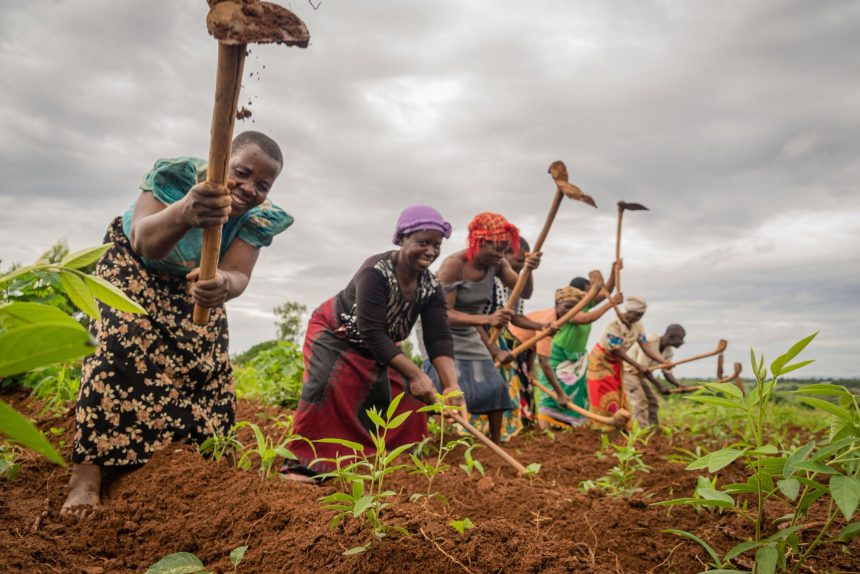Adeola Azeez, the founder of Adeola Azeez Community Care Foundation (AACCF), conducted a two-day Agritech Empowerment Training Programme in Ogun State, empowering over 150 women in agritech and financial inclusion.
Azeez stated that her primary focus this year is to empower women farmers by providing training on various technologies that can enhance their socio-economic prospects in agriculture and increase food production.
“The training was organized to commemorate this year’s International Women’s Day and to recognize the contributions of our women in advancing society through agriculture and food production. Its aim was to empower women in agriculture through the transformative potential of technology, offering education and training to enhance the efficiency and productivity of women in agribusiness,” she explained.
Azeez further emphasized the importance of engaging all stakeholders and the government to implement interventions that cater to the specific concerns and requirements of women in agriculture. These interventions include ensuring access to funding, land, machinery, agricultural inputs such as fertilizers and feeds, as well as facilitating access to both global and local markets.
Bamidele Abiodun, the First Lady of Ogun State, highlighted that approximately 70 percent of Nigerian women engaged in farming require financial assistance and enhanced investment opportunities. This is crucial as many of them still face significant financial hardship and lack access to funding compared to their male counterparts.
“Concerted and intentional actions from governments and other stakeholders would significantly contribute to achieving Sustainable Development Goals aimed at poverty eradication, enhancing food production, and ultimately achieving zero hunger,” she emphasized.
Abiodun noted that women play pivotal roles across various value chains, yet their financial gains within these sectors remain lower compared to men. This discrepancy is largely due to the fact that women constitute a significant portion of the agricultural labor force.
She pointed out that despite studies indicating higher success rates, impact, and repayment rates for investments in women in agriculture, they are less likely to receive payment for their production, particularly among smallholder farmers, and encounter greater difficulty in accessing financial resources.
“All of these factors compound the issue, along with the observation that investments in women are more likely to benefit other women, as evidenced by the support provided by Adeola Azeez,” she concluded.





